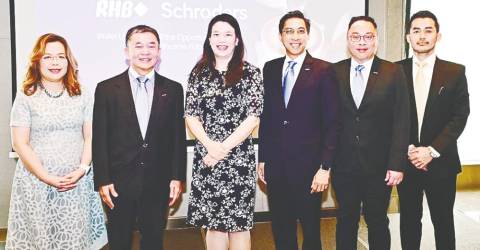ADVERTISE HERE
KUALA LUMPUR: Japan’s Mitsubishi Power Ltd, part of Mitsubishi Heavy Industries Group, is eyeing hydrogen power projects in Malaysia to support the country’s transition to green energy.
Mitsubishi Power Asia-Pacific managing director and CEO Akihiro Ondo said Malaysia’s potential for energy transition lies in replacing older power stations with more efficient technologies, such as gas turbine combined cycle (GTCC) systems.
“To combine such renewable energy with a reliable baseload gas turbine combined cycle is important for energy security and sustainability in Malaysia. Therefore, we would like to be involved in this strategy for Malaysia by providing our technologies and solutions,” he told Sun Biz in an interview.
Furthermore, Ondo mentioned strong governmental support in Malaysia for energy transition initiatives.
“The Malaysian government has shown a strong commitment to energy transition. We have engaged in productive discussions with government-owned entities and agencies based on feasibility studies and other energy transition activities,” he said.
However, Ondo noted that deploying commercial-scale energy transition and decarbonisation programmes might be difficult for a single country. “We believe that intergovernmental arrangements involving Japan and other countries will be quite important. We would like to continue our dialogue with both the Malaysian government and the Japanese government.”
Ondo said their gas turbines and hydrogen production facilities can integrate with renewables to manage fluctuations in energy supply. “Malaysia has abundant resources for renewables, including hydropower in Sarawak, which can serve as a reliable baseload. We are in close communication with renewable energy providers and developers.”
Regarding competition in the hydrogen market, Ondo stressed collaboration over competition. “We are willing to work with potential partners in Sarawak to produce hydrogen based on renewable resources, which can be utilised for power generation or exported to Japan,” he said.
On the outlook for hydrogen fuels in Malaysia, Ondo expressed Mitsubishi Power’s commitment to validating and deploying technology for hydrogen and ammonia.
The company operates Takasago Hydrogen Park in western Japan, which features a gas turbine factory, a research and development centre, and a verification facility with a capacity of 550 megawatts – equivalent to the Miri-GTCC project in Malaysia.
By 2026, Mitsubishi Power plans to install four types of hydrogen production facilities at Takasago, enabling the production and storage of hydrogen on-site for use in gas turbine combined cycle systems.
The facility aims to validate technology for hydrogen combustion, with plans to increase hydrogen firing from 30% to 50% this year and eventually test 100% hydrogen firing in smaller-scale gas turbines.
“Our gas turbine, validated at Takasago, can currently fire 30% hydrogen. The commercial plant can initially operate with natural gas or LNG. Once the hydrogen supply chain is established, the plant can gradually increase hydrogen usage to achieve a complete transition,” Ondo said.
Since the 1960s, Mitsubishi Power has delivered several important power stations in Malaysia, including those in Pasir Gudang, Port Klang and Lumut, and has been involved in the construction of Tenaga Nasional Bhd’s (TNB) Tuanku Jaafar Power Station in Port Dickson.
“Recently, we secured the new GTCC project in Miri, Sarawak (in August). We will install high-efficiency and reliable technology capable of co-firing cleaner fuels like hydrogen, which is expected to be in commercial operation in 2027,” Ondo said.
He also mentioned that the company is pursuing a memorandum of understanding with TNB regarding energy transition to explore the application of cleaner fuels, carbon capture and other energy conservation measures.









 English (US) ·
English (US) ·